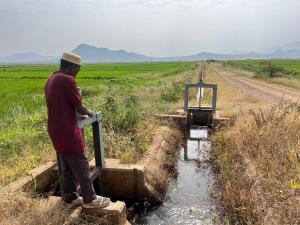Test project Pesticides and Protection Tanzania
testing out building a project
pece_annotation_1473543120
Alexi MartinThrough looking at the bibliography I can connect the dots of the problems in Rwanda and Hati that are still not solved. This article can also be considered as a continuation of this research in that aspect.
pece_annotation_1480634894
Alexi MartinThree points I followed up on to advance my understanding of emergency response was how other countries report and treat rape, rape as a war crime- is it treated or ignored and in what countries, and incidents of sexual violence that get reported and treated, and further care ( how to help others immediately) and how to respond to these events.
pece_annotation_1474078158
Alexi Martin
The article referenced historical events of health epidemics in preparing for the future. The lack of current data indicates an improvement in health security or a lack of research for this publication. The extensive quotes in this article show the knowledge and credibility of the article in how securing global health has many aspects.
pece_annotation_1480832290
Alexi MartinThe tools used to produce the data in this research article was direct accounts from those who have experienced violence in delievering health services, outside brainstorming from a research panal to discover how/why violence has occured or why it was not reported. Also interpretation from data that was put out by the WHO, MSF or other health organizations.
pece_annotation_1474842083
Alexi MartinEmergency response is not mentioned in the article, it is briefly mentioned on how each of the disasters were handled, however the article mainly focuses on the aftermath. What had caused these disasters? And what could have been done in the future to prevent them?
pece_annotation_1474854069
michael.leeThe author primarily discusses the disaster investigation surrounding the aftermath of the 9/11 World Trade Center disaster. Dr. Knowles presents the investigation as having been marred by jurisdictional conflicts, clashes of authority among powerful institutions, competition among experts, and political pressure from both the public and the government. He argues that this phenomenon is not unique to the World Trade Center collapse but has occurred throughout every major disaster investigation in the United States, including the burning of the US Capitol Building in 1814, the Hague Street boiler explosion and building collapse in New York in 1850, and the Iroquois Theater Fire in Chicago in 1903. He argues that disaster investigation is not the "dispassionate, scientific verdict of causality and blame" but is instead a "hard-fought contest to define the moment in politics and society, in technology and culture."
pece_annotation_1475371943
Alexi MartinThe main argument of the article is legalizing dieased undocumented immigrants the way this should be accomplished and the history of the issue, specifically in France from the past to the present.



the rice irrigation scheme, Pare Valley, Tanzania